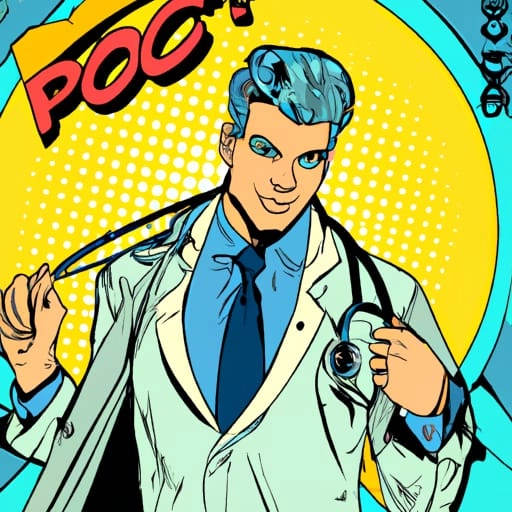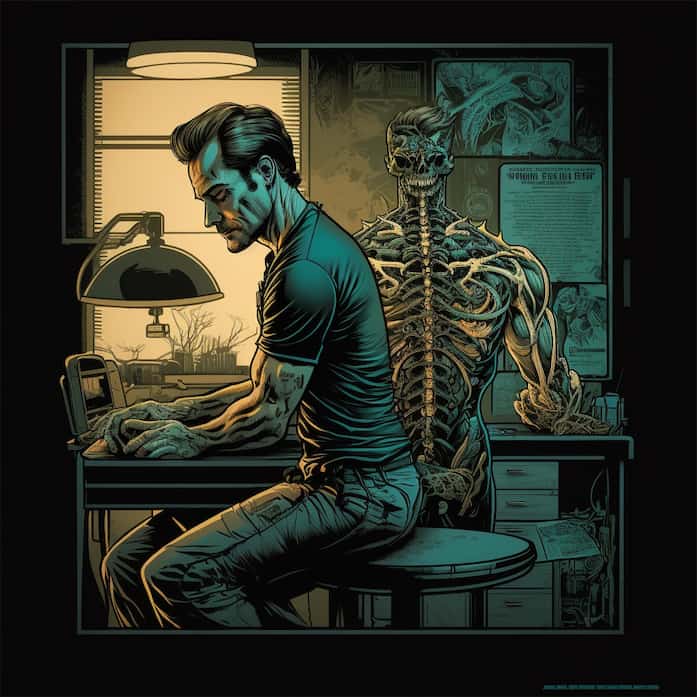Sinus Infections and Anxiety Attacks: What You Should Know
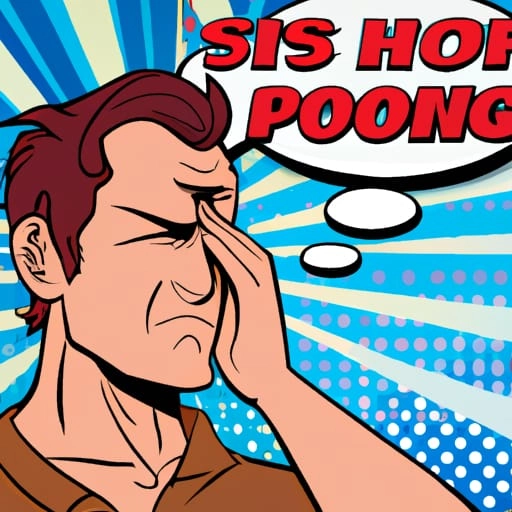
Can Sinus Infection Cause Anxiety Attacks?
Yes. But read on to learn more about sinusitis and anxiety along with some tips to manage both.
Anxiety and Sinusitis
Anxiety is a mental health disorder characterized by feelings of worry, fear, or panic. Anxiety disorder affects your brain’s response to perceived threats, but the physical symptoms you experience are not always based on reality.
Sinusitis is an infection or inflammation of the sinus cavities. It can be caused by a virus, bacteria, fungus, or an allergic reaction.
Chronic rhinosinusitis (CRS) affects one in ten adults. Inflammation causes pain in your sinus areas when your sinus cavities get blocked and the mucus cannot drain away. You feel sinus pain in the forehead, in the cheeks and behind the eyes.
Sinusitis can also lead to nasal congestion, headaches or pressure in the face and head. If you have chronic sinusitis (recurring sinusitis), it can cause depression and anxiety. This blog will tell you all about sinus infections and how they affect anxiety levels.
Chronic Sinusitis & Depression
Sinusitis can come and go, but sometimes it stays. If so, they will diagnose it as chronic rhinosinusitis when it lasts for at least 12 weeks despite attempts to treat it and causes at least two of the following symptoms:
- Congestion in the nose.
- Mucus running from the nose or dripping down the back of your throat.
- Pain, pressure, or “fullness” in the face
If you go to your doctor, she or he will take a detailed history and conduct a thorough examination of the sinuses. The doctor will also consider factors such as age, gender, race, and medication history before making a diagnosis of a chronic sinus infection. They may refer you to an ENT specialist, or treat you themselves.
The symptoms of sinusitis vary from person to person. However, the most common symptoms include nasal congestion and postnasal drip, where you feel mucus at the back of the throat. You will get a feeling of sinus pressure. Sometimes a runny nose, or a nose that runs with spicy food, can be related to sinus issues. Itching in the nose and headaches are also common signs of sinusitis.
Unfortunately, if you leave chronic sinusitis untreated, it can lead to mental health issues like depression or even panic attacks.
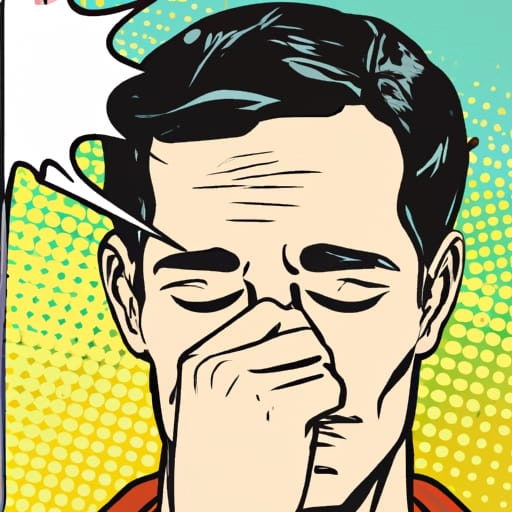
Clinical Evidence of the Link Between Sinusitis and Anxiety
A 2019 South Korean study, published in the journal JAMA Otolaryngology – Head & Neck Surgery, found that during the 11-year follow-up, people with sinusitis were 1.51 times more likely to have depression than people without depression. There were 1.57 times as many cases of anxiety in people with sinusitis.
Interestingly, this study found that people with CRS who didn’t have nasal polyps were more likely to develop depression and anxiety than those with CRS who had nasal polyps.
But, even though people with chronic rhinosinusitis have a higher rate of depression and anxiety, it is still not clear what causes these conditions.
The study could not say whether depression and anxiety make the symptoms of chronic rhinosinusitis worse or if depression and anxiety result from chronic rhinosinusitis.
https://www.ncbi.nlm.nih.gov/pmc/articles/PMC6481428/
One thing is known, however: understanding the physical and mental symptoms of sinus infections, you will have a much easier time with anxiety. You can learn to identify the feelings of the sinusitis that most lead to an anxiety attack. You can also take steps to manage your stress levels by engaging in activities that help reduce your anxiety level.
Causes of Sinus Infections?
A variety of factors can cause sinusitis, including viruses, bacteria, or environmental allergens. Seasonal allergies can make sinus problems worse in either the winter or the summer, depending on your allergy. If a bacterial infection confounds the sinus problems, which may present as a smelly nasal discharge, you may need to speak to your health care provider about antibiotics.
Remember, though if there is no bacterial infection, and acute sinusitis can be caused by a viral infection also, then medical treatment with antibiotics will be useless and taking them will only help the bugs become resistant to them, which will lead to world-wide problems in a generation or two.
Sinusitis can also be caused by a deviated septum, which can block the flow of mucus from the sinuses into the nasal passages. This lets bacteria and other irritants build up, which can lead to sinusitis. This can make the lining of the sinuses red and swell, which can lead to sinusitis.
When sinusitis is chronic, it can cause facial pain or pressure, a stuffy nose, and general illness. Sadly, sinus conditions can lead to mental health problems like depression, or even panic disorder because of the physical and emotional toll of the long-term symptoms of the condition. This can make you have a lower quality of life and if this happens, you should, of course, seek treatment.
Do nasal polyps factor in?
Some of the most common sinus issues involve nasal polyps, which are growths in the nasal passages that can block airflow and cause inflammation. These polyps may develop due to chronic or ongoing sinus problems, allergies, or other environmental factors. Other sinus issues include sinusitis and sinus cavity infections. These conditions can be challenging to treat and can lead to further issues if left untreated. Identifying triggers for your particular sinus issue is key to preventing future flare-ups.
How Does Sinusitis Cause Mental Health Problems?
Sinus problems can cause anxiety and depression in three main ways:
- The first way is that the pain in the face, stuffy nose, and headaches that come with sinus problems can make a person feel uncomfortable and anxious.
- Chronic sinus problems can also make it hard for a person to sleep. This can make them feel tired and irritable, and it can even lead to depression.
- People with chronic sinus problems may also experience anxiety and depression because the condition affects their quality of life and their ability to do daily tasks.
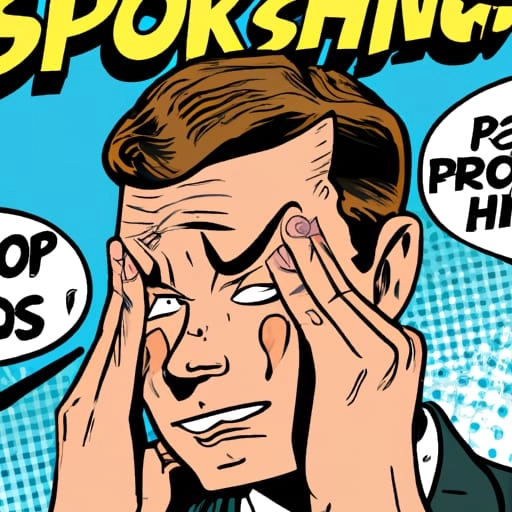
How To Manage Anxiety and Depression From Sinusitis
Treat The Underlying Sinusitis
It is important to reduce stress and manage any underlying medical conditions that may contribute to sinus problems.
Using a humidifier or saline nasal spray can help to clear your nasal passages and relieve congestion.
Nasal decongestants: These medicines can help clear up stuffy noses and make breathing easier.
Saline nasal sprays or rinses: Using a saline solution to rinse the nose can help get rid of mucus and reduce swelling.
Antihistamines: These medicines can help ease the symptoms of allergic rhinitis, which is a condition that often goes along with sinusitis.
Steroids: You can take steroids by mouth to reduce swelling and pain in your sinuses.
Antibiotics: If bacteria are causing the sinusitis, your doctor will probably give you antibiotics.
Sinus surgery: In some cases, they may suggest surgery of the sinus passages to help them drain better and get rid of long-term symptoms.
Overall, with help, advice and treatment, you can manage sinus problems can so that they don’t lead to anxiety or other mental health issues.
ENT Treatment
Balloon sinuplasty is a minimally invasive ENT procedure used to treat chronic sinusitis. It involves the use of a small balloon that is inserted into the nasal passage to open the sinuses and improve airflow. They perform the procedure under general anesthesia, and takes about 30-90 minutes.
Balloon sinuplasty is a safe and effective treatment for chronic sinusitis. If you are considering balloon sinuplasty, it is important to discuss your health and current health conditions with your doctor. They will advise you on the best treatment option for you based on your individual needs and health condition.
Lifestyle or Environmental Changes
Dietary changes can also help prevent sinusitis by keeping a healthy diet free of mucus-causing foods such dairy foods, sugar or highly processed foods.
Daily activities such as exercise can help strengthen the immune system and reduce inflammation, which can help reduce chronic sinus issues.
Avoid your sinus triggers: If you know what causes your sinusitis, like dust, pollution, or certain types of weather, try to stay away from these things as much as possible.
Hydration: Drinking a lot of water and other fluids can help thin mucus and keep the nasal passages moist.
Humidification: A humidifier can help add moisture to the air and make it less dry in the nose.
Nasal irrigation: Using a saline solution to rinse the nasal passages can help get rid of mucus and reduce swelling.
Control allergens: If you have allergies, take steps to limit your contact with allergens like dust mites, pet dander, and mould.
Quit smoking: If you smoke, quitting can help reduce inflammation and improve your respiratory system’s overall health.
Diet: Eating a healthy diet full of fruits, vegetables, and probiotics can help strengthen the immune system and lower the chance of getting sick.
Don’t drink alcohol or caffeine. Both can dry out the body and irritate the nasal passages.
Regular exercise can help improve your overall health and reduce stress, both of which can make sinusitis symptoms better.
Getting enough sleep: Getting enough sleep is important for overall health and can help reduce stress and boost the immune system.
It’s important to keep in mind that some of these changes might not have much of an effect, and it’s always best to talk to a medical professional about the best way to treat your specific situation.
Mental Health Treatments for Depression and Anxiety Caused by Sinus Problems
Sinus problems can cause psychiatric issues such as depression and anxiety, but there are several mental health treatments that can help:
Cognitive-behavioral therapy (CBT): This type of therapy can help people find and change negative thought patterns and behaviours that contribute to depression and anxiety.
Mindfulness-based therapies: Activities like yoga and meditation can help people pay attention to the present and feel less stressed and anxious.
Behavioral activation is a type of therapy that helps people find and do things they enjoy and that can make them feel better.
Support groups: Joining a support group can give people a sense of belonging and the chance to talk about their struggles with others who are going through the same things.
Relaxation Techniques: you can learn new techniques, such as
Medication: A doctor can give you antidepressant or anti-anxiety medication to help with the symptoms of depression or anxiety.
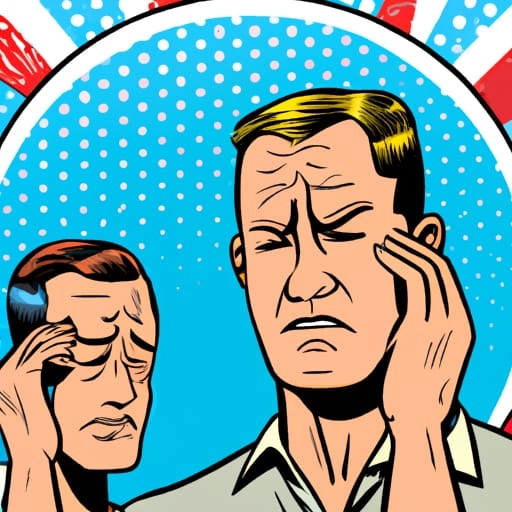
Conclusion: Can Sinus Infections Make You Have Anxiety Attacks?
Yes, they can. But you can learn to manage them, either through doing your own research (as you are doing now) or going to a healthcare professional.
If you want to get relief from the underlying sinusitis, you can visit your general doctor or ENT specialist. You may choose to address the mental health issues via a counsellor, cognitive-behavioral therapy, or got to see a psychiatrist to prescription medication like antidepressants.
Changing your diet, getting exercise, prioritizing sleep, and chill out time are some natural methods you can try — and they don’t have side effects.
You may do all three. If it were me, I’d try them all. There’s nothing to lose and these ideas are good ones and have a certain synergy!
You never know, you might even end up happier than you were before the sinusitis started.
Further Articles You Might Like
Do Neurologists Treat Depression?
can anxiety be caused by hormones?
Is Venlafaxine A Good Medication for Anxiety and Depression?


